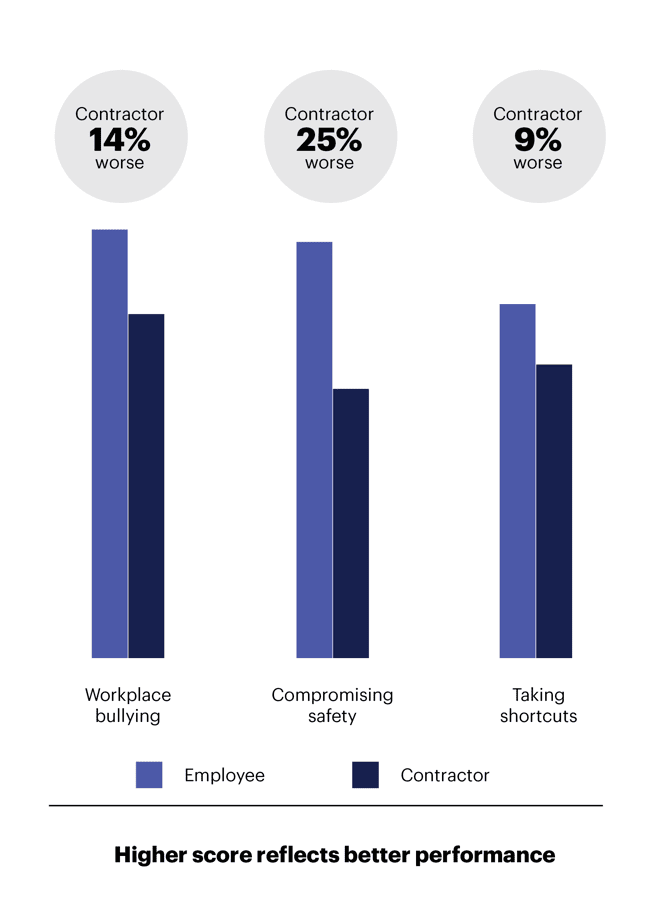Subcontractors feel under significant pressure to compromise safety in order to complete jobs on time, according to research released this month.
Risk, health and safety experts FEFO Consulting found subcontractors were more likely to experience this pressure compared with direct employees (25% worse), and more likely to compromise safety by taking shortcuts (9% worse).
Health & Safety Index benchmark results were recently released, with a focus on contractor health and wellbeing. In construction, contractors play a huge role in meeting safety standards and ultimately the safety of workers. Both HammerTech and FEFO share the ethos that it’s vital to better understand this difference and find solutions to equalise safety conditions for all workers – no matter their employer.
FEFO, which advises clients on risk, health and safety across a range of sectors including construction and mining, has been compiling its Health & Safety Index for the past three years. Based on responses to 55 benchmark questions, and drawing on hundreds of thousands of datapoints, the Index provides an independent assessment of the HSE challenges and opportunities facing industry today.
FEFO managing director Mark Wright said: “While overall safety of subcontractors and direct employees is broadly similar, the research highlights a number of safety aspects where subcontractors lag the permanent workforce of an organisation.”
“Generally, they returned poorer scores for praise and recognition, bullying, psychological safety, and feeling under time pressure.”
Mark Wright, General Manager, FEFO Consulting

Shift workers
And the picture was even starker for subcontractors performing shift work, who recorded poorer mental health results compared to non-shift workers. Most notably, a mismatch was identified between workers knowing how to get the job done compared with having the actual freedom to perform the work appropriately.
“While shift workers were generally more confident about the best way to complete a job compared with non-shift workers, they were more likely to be exposed to bullying (27% worse) and more likely to feel they didn’t have the freedom to perform the job as they would like to (6% worse),” Mr. Wright said. “This clearly had potential flow-on effects to their mental health, with shift workers scoring lower on readiness to talk about mental health (8% worse), impact of work on health and wellbeing (9% worse) and impact of work on sleep (11% worse).”
“While shiftwork is more common for civil construction and events than in the building industry, these findings still highlight the importance considering workers wellbeing, fitness for work and fatigue management in any business.”
Click Here to read the full article.
Article courtesy of HAMMERTECH
Get in touch
Got questions? Want to speak to a member of the HSI team? Contact us today, we’d love to hear from you.
Mark Wright and the HSI team
M: +61 1300 909 649
Until next time,
